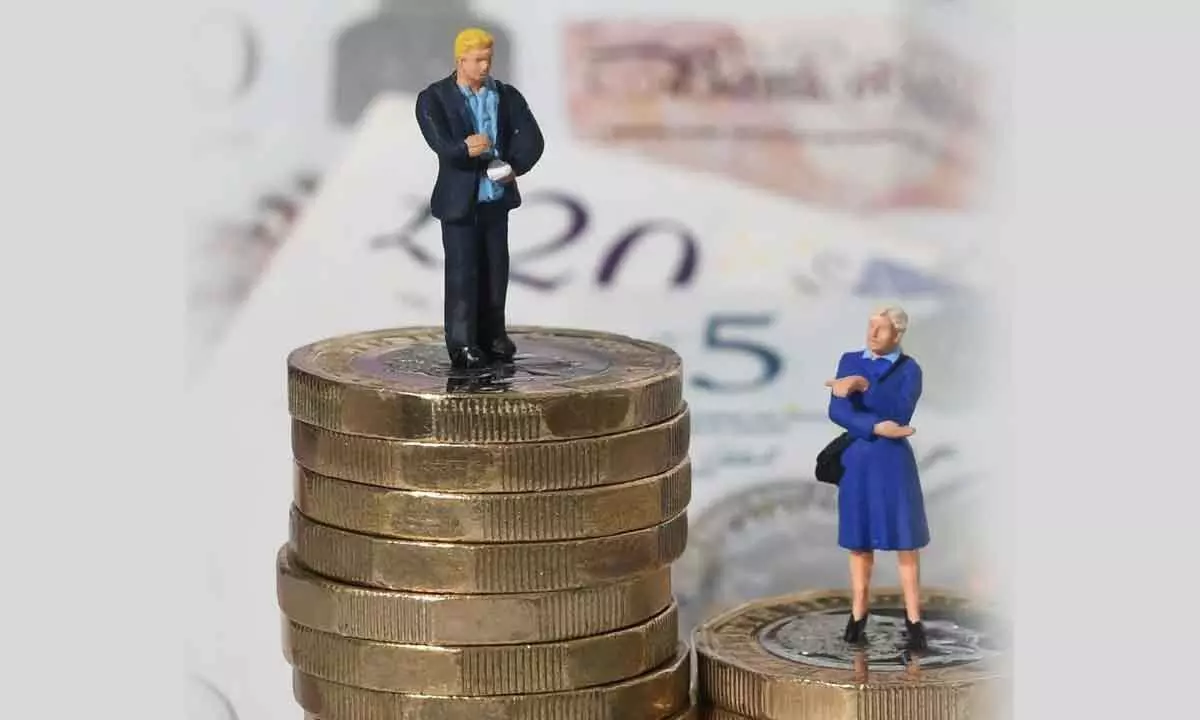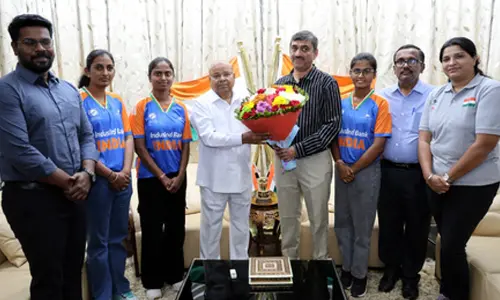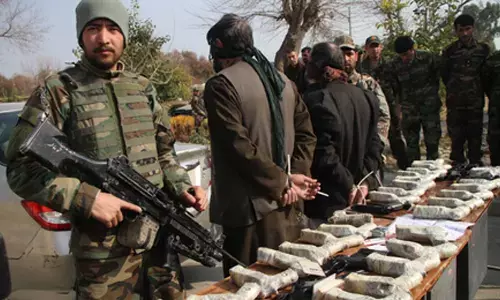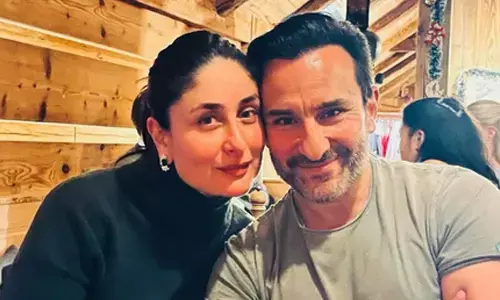A Fair Quota of Gender Justice

No country today can claim to have achieved gender equality. Huge challenges remain for women in the 21st century. Change is possible only if political commitment and adequate legal and policy frameworks are in place to provide a level playing field for both women and men
“Der aaye durust aaye”, goes the Hindi saying, with “Better late than never,” being the English equivalent.
There is no gainsaying the fact that the passage by Parliament, of the Women’s Reservation Act, was overdue. However, one draws consolation from the fact that the legislation has finally seen the light of day. According to the central government, the provisions of the Act will come into force after the delimitation exercise for Parliament and Assembly constituencies is done, based on the results of the first population census of the country to be conducted in the future. When that happens, and given the rapidly changing ambience of the country, on account of increased levels of female literacy and urbanisation, one begins to see light at the end of the tunnel, for the women of the country.
For ages, men have continued to dominate societal and family life. The attitude of society towards women continues to shock, if not frighten. In just one year, the year 2019, for example, several outrageous crimes were committed against women across the country, from Kashmir to Kanyakumari, and from Bhuj to Aizawl. They constitute a slur in the fair image of Indian society and raise serious doubts about the legitimacy of its claim to being civilised. The acts ranged from abuse to killing.
The scourge of unequal treatment of women is also found elsewhere in the world. In a first ever global study on female infanticide, by the Asian Centre for Human Rights, a Delhi-based NGO dedicated to protection of human rights, it has been revealed that preference of son over daughter is a major reason for female infanticide in many countries around the world. Nepalese women are under pressure to bear a son, according to a survey by a Nepal-based NGO, Center for Research on Environment Health and Population Activities, 81 per cent women, whose first child was a daughter, preferred a son.
All this is happening despite the fact that the Holy Scriptures of major religions extol the position of women. The Holy Bible tells us, for instance, that Jesus Christ was born to Virgin Mary. And, according to Hindu faith, the Triumvirate of the three Gods, of creation, sustenance and destruction, namely, Lord Brahma, Lord Vishnu, and Lord Shiva are children of Adishakthi, the Goddess that is the Original Fountain of the energy that the Universe was formed out of.
No country today can claim to have achieved gender equality. Huge challenges remain for women in the 21st century. Change is possible only if political commitment and adequate legal and policy frameworks are in place to provide a level playing field for both women and men. Some years ago, this columnist served as a Member of a Jury constituted by the United Nations Children’s Emergency Fund (UNICEF) to determine which the best state in the country was in terms of encouraging production of TV stories espousing the cause of the welfare of the Girl Child. It was a truly revealing experience. Despite their best efforts, most of the Telugu TV channels could not produce stuff without violence or stereotyped insipid themes highlighting the plight of the Girl Child, strikingly indicative of the hypocrisy, which society in general practises, while dealing with issues involving discrimination against women and children.
A few short movies, and documentaries, that were shown, however, highlighted the scourges of discrimination against women, beginning when they are girls, with parents spending time in grooming girls for becoming good wives, while concentrating little on providing them learning and knowledge.
Efforts by governments to protect the status of women and create equal opportunities in education, employment and inheritance of property were, in fact, initiated quite some time ago. As long ago, as in the 1980s, the legendary NTR piloted the passage, by the Andhra Pradesh Legislature, of an Act that created a right for women in ancestral property. And, now the Government of India’s “Beti Bachao, Beti Padhao”, is an initiative of the central government that celebrates the girl child and enables her education with hundred percent government assistance.
Many other countries have taken significant steps towards ushering in an era of equality and parity for women. For example, realising that the dowry system in South Asia makes daughters “an unaffordable economic burden,” and contributes to female infanticide, the People’s Republic of China brought in a law on Maternal and Infant Health Care in 1994, China also has the Population and Family Planning Law that prohibits sex identification of foetus and sex-selective abortions.
Likewise, South Korea is one of the very few nations where the imbalanced sex ratio has been reversed. According to ‘The Women, Peace and Security Index’, co–published by Georgetown University and Oslo’s Peace Research Institute, Sweden ranks first among the countries in the world which are best for women. And Afghanistan comes last.
Committed to uplifting the girl child, NGOs like ‘Save the Children’ are bringing hope to thousands of girls in India by giving them the right environment and opportunities to learn. Empowering Women by Balancing the Law (EWBL) is an international initiative which supports interested countries in assessing legal landscapes and, in turn, designing, and implementing, reforms to discriminatory laws and improving enforcement of existing legislation.
Through a gender-inclusive lens and a bolstered vision for equality, EWBL and interested countries partner under its umbrella to build resilient economies and greater fulfillment of international commitments.
At the international level, and with a view to focusing the attention of member countries on the status of women, the United Nations has organized four world conferences on women. These took place in Mexico City in 1975, Copenhagen in 1980, Nairobi in 1985 and Beijing in 1995. The Beijing Conference marked a significant turning point for the global agenda for gender equality. The Beijing Declaration and the Platform for Action, adopted unanimously by 189 countries, is an agenda for women’s empowerment and considered the key global policy document on gender equality.
The history of the world has seen many great women contributing significantly to the welfare and development of mankind. Few persons can match the sacrifice, and sense of dedication, that went into the activities of great persons, such as Florence Nightingale, Mother Teresa or Durgabai, Deshmukh. The valour and bravery shown by great women such as Joan of Arc in France and Jhansi Lakshmi Bai in India, through fearless opposition to imperialist forces, will never be forgotten by their countrymen.
Few people strutted so majestically, and confidently, in the international arena, as Mrs. Indira Gandhi did in the 20th century. Her tenure as Prime Minister of India was marked with as many remarkable achievements, in the field of economic and social development of the country, as it was marred by many instances of ruthless, quelling of opposition to her policies, especially the period of the national emergency in the 1970s. She left an indelible mark on the history of her country and her assassination was described by world leaders as an event that left a ‘big emptiness’ in international affairs. Then there is the example of Sirimavo Bandaranaike, the first woman in the world to become the Prime Minister of a country, who also served as the Chairman of the Nonalignment Movement in the middle 1970s.
A similar distinction, in world history, is enjoyed by Golda Meir who served as the first and only Prime Minister of Israel, known as the ‘Iron Lady’ on account of her willingness to wage in defence of our country, Mrs. Margaret Thatcher, Prime Minister of England, was also a person built in the same mould, and known by the same title. Another star, that shines brightly in the firmament of women achievers in world history, is Aung San Suu Kyi of Myanmar, who was awarded the Noble Prize for leading a non-violent struggle for democracy and human rights against the oppressive military regime in her country.
Having sung praises for the ‘better halves’ all along, this columnist now wishes to end this piece on a tongue-in-cheek note. The chief guest, at a function got up to celebrate the status of women, began his speech with the words, “women are generally speaking…”, when a rather tired looking, middle-aged man from the audience stood up, and said, “Sir, I think you have said enough”!
In the early days after our marriage, Usha, my wife, hardly ever uttered a word, even in the most boisterous company. And, now, there is no stopping her at all!
(The writer is formerly Chief Secretary, Government of Andhra Pradesh)














